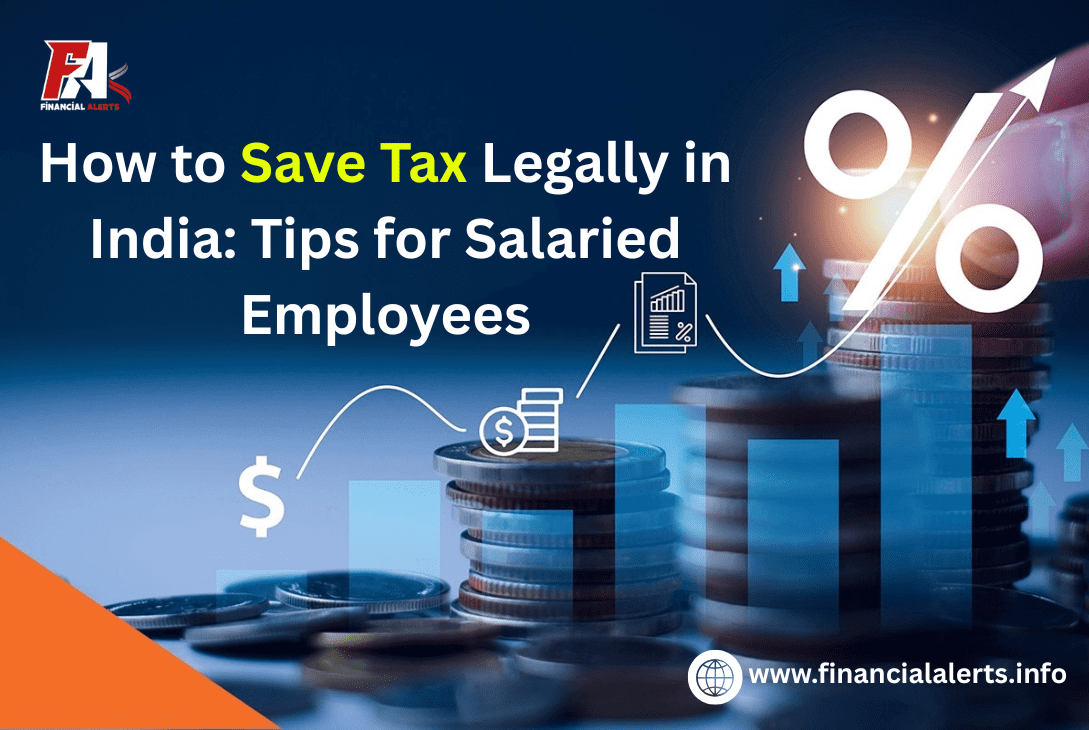Paying income tax is mandatory if your earnings exceed the exemption limit. But the good news is that the Indian government offers several legal ways to reduce your tax burden, especially if you’re a salaried employee. Through smart planning, correct investments, and proper documentation, you can significantly reduce your taxable income and save money.
In this article, we will explore simple and effective tax-saving strategies under the Indian Income Tax Act that salaried individuals can use.
1. Understand Your Salary Structure
Before you begin tax planning, it’s important to understand your salary breakup. Key components like Basic Pay, House Rent Allowance (HRA), Leave Travel Allowance (LTA), Special Allowance, and others determine what part of your salary is taxable and what is exempt.
Check with your HR if your salary includes:
- HRA (House Rent Allowance)
- LTA (Leave Travel Allowance)
- Food coupons or Sodexo
- Mobile/Internet reimbursement
These components can help you claim tax exemptions.
2. Choose the Right Tax Regime
There are two income tax regimes in India:
🔹 Old Tax Regime
- Higher tax slabs
- Allows deductions like 80C, 80D, HRA, LTA, etc.
🔹 New Tax Regime
- Lower tax slabs
- No major exemptions or deductions allowed
Tip:
Choose the regime that benefits you more. If you have multiple investments and deductions, stick with the old regime. If not, the new regime might offer better rates.
3. Best Legal Ways to Save Tax
Here are the most effective tax-saving methods under the Old Tax Regime:
A. Section 80C – Save Up to ₹1.5 Lakh
You can claim up to ₹1.5 lakh under Section 80C for the following investments:
| Investment Option | Description |
| EPF (Employee Provident Fund) | Automatically deducted from salary |
| PPF (Public Provident Fund) | Long-term safe investment |
| ELSS (Equity Linked Savings Scheme) | Tax-saving mutual fund |
| LIC Premium | Life insurance premium |
| 5-Year Tax-saving FD | Fixed deposits in banks |
| NSC (National Savings Certificate) | Available at post offices |
| Children’s Tuition Fees | For up to 2 kids |
| Home Loan Principal Repayment | For self-occupied property |
Example:
If you invest ₹1.5 lakh in PPF or ELSS, your taxable income will reduce by the same amount.
B. Section 80D – Health Insurance
You can claim a deduction for premiums paid for health insurance.
| Insured Person | Deduction Limit |
| Self, Spouse & Children | ₹25,000 |
| Parents (Below 60) | ₹25,000 |
| Senior Citizen Parents | ₹50,000 |
Maximum Deduction: ₹75,000
You can also claim preventive health check-up costs up to ₹5,000 within these limits.
C. HRA – House Rent Allowance
If you live in a rented home and receive HRA in your salary, you can claim an exemption.
Exemption Rule: Least of the following is exempt:
- Actual HRA received
- 50% of basic salary (metro) or 40% (non-metro)
- Rent paid – 10% of basic salary
Note: Keep rent receipts and PAN card of landlord (if rent > ₹1L/year).
D. LTA – Leave Travel Allowance
You can claim LTA exemption for travel within India (twice in a block of 4 years).
- Only travel expenses (bus, train, flight) are covered
- No exemption for food or hotel bills
- You need to submit proof to your employer
E. NPS – National Pension Scheme (Section 80CCD(1B))
Additional tax-saving option under NPS:
- Claim extra ₹50,000 over and above ₹1.5 lakh of 80C
- Long-term retirement benefit with partial tax-free withdrawal
Total saving possible: ₹2 lakh (₹1.5L + ₹50k)
F. Section 80E – Education Loan Interest
Deduction for interest on education loan (no limit)
- For higher studies of self, spouse, children
- Maximum period: 8 years
G. Section 24(b) – Home Loan Interest
- Deduction up to ₹2 lakh on home loan interest
- Property must be self-occupied or vacant
- For rented properties, full interest is deductible (subject to limits)
If you’re a first-time homebuyer, you can also claim:
- ₹50,000 extra under Section 80EE (conditions apply)
H. Standard Deduction for Salaried Employees
All salaried taxpayers get a flat standard deduction of ₹50,000 – no investment or documents needed.
4. Additional Tax-Saving Tips
Apart from major sections, here are some smart tips salaried individuals can use:
- Meal Coupons: Some companies provide Sodexo/food coupons that are tax-free up to ₹50/day.
- Mobile/Internet Bills: Reimbursement of work-related bills can be exempt.
- Education Allowance: ₹100/month per child (max 2 children).
- Uniform Allowance: If it’s part of your job role, it’s exempt.
Talk to your HR and structure your salary in a way that includes these allowances.
5. Common Mistakes to Avoid
Many salaried taxpayers lose out on savings due to small mistakes. Here’s what to avoid:
- Last-minute tax planning in March
- Not submitting investment proofs to employer
- Choosing the wrong tax regime
- Ignoring deductions like NPS or 80D
- Investing

I am a digital marketing executive as well as content writer in the income tax and credit cards category. My goal is to provide simple, interesting and reliable information to readers through my articles so that they always stay updated with the world of income tax and credit cards.



